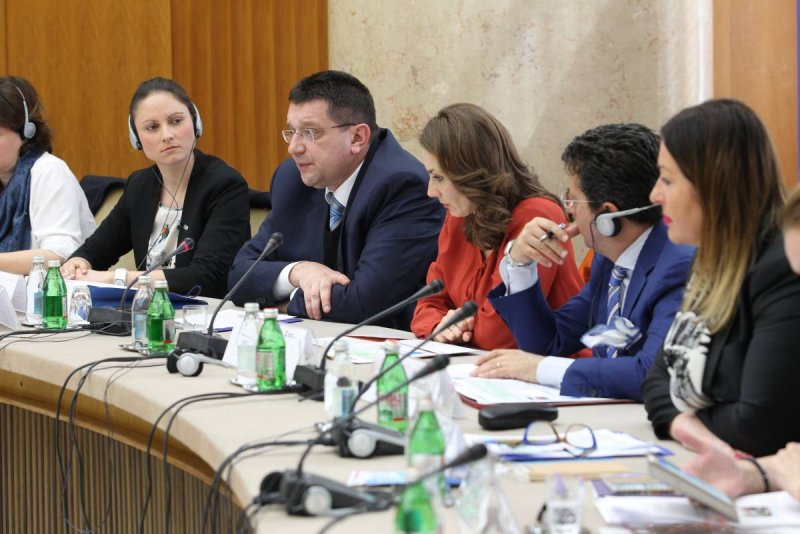Gender aspect is very important when we talk about security and decreasing the risk of natural disasters, said Brankica Janković, Commissioner for the Protection of Equality, at the expert conference „Security and gender in emergency situations“, stressing that timely, accurate and adequate reporting is of paramount importance in such situations.
Commissioner stressed the importance of gender aspect in the field of security and how influential it can be in decreasing the risk of natural disasters. She also said that „Media, gender and reporting in emergency situations“ manual was published in cooperation with the OSCE Mission in Serbia.
Although natural disasters affect whole population, they can have different consequences on men and women, as well as on sensitive groups, because of different vulnerability levels and their social exclusions. Gender roles, social norms and inequality between men and women have an impact on risk perception and exposure to risk, on the ability to respond and also on potential for recovery and reconstruction after the disaster, said Commissioner Janković.
Andrea Orizio, Head of the OSCE Mission to Serbia, highlighted the good cooperation with Serbian authorities and noted that this conference was intended to show that safety would grow if more attention were focused to issues of gender and participation of women.
We have to raise consciousness, not only in Serbia, since it is proved worldwide that when gender dimension is considered, the safety and reactions were more rational, because women are more rational in emergency situations, said Orizio.
Stana Božović, State Secretary of the Ministry of Agriculture and Environment, said that gender policies were included in all sector policies, while floods in 2014 revealed issues that need additional efforts.
In extreme situations, it turned out that women were suffering the most, especially older or ones with disabilities, while families were sometimes separated. Men have attended trainings and are being called in extreme situations, but we need to work on training of women, added Božović.
Predrag Marić, Head of Sector for Extreme Situations in the Ministry of Interior, estimated that the conference presents one of the most important activities in establishment of contemporary legislative framework related to extreme situations and field work.
Other speakers at the conference included: Catrin Promper, Secretary of Women Exchange 4 Disaster Risk Reduction (we4DRR); Milan Srdic, journalist; Olivera Zurovac Kuzman, Environmental Advisor with the OSCE Mission to Serbia; Nina Topić, representative of UNDP in Serbia; Martina Egedušević, postgraduate student of Heriot-Watt University in Edinburgh; Dr Doris Damjanović, Assoc.Prof. at the University of Natural Resources and Applied Life Sciences in Vienna; Višnja Ljubičić, Ombudsperson for gender equality of Croatia and Vanja Rokvić, Assistant Professor at Faculty of Security Studies in Belgrade.


